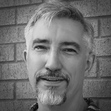Steven R. Southard's Blog, page 23
April 30, 2022
Mind the Gap
In the London subway system, iconic signs exhort patrons to step with care across the space between platform and train with the words “Mind the Gap.” Not bad advice for time management while writing, either.

Here I refer to a different kind of gap. Inspired by Andrew Gudgel’s post on June 3, 2019, which he based on Samantha Leach’s article in Glamour, I’m referring to a gap in writing productivity.
The blogpost and the article state that author Danielle Steel writes 20 to 22 hours a da...
April 24, 2022
Do You Begin with Character, Plot, or Theme?
You’re thinking about writing a novel. Do your first thoughts focus on a character, events, or ideas? Whichever it is, opportunities and dangers await you.
This past week, I listened to an online lecture by author Emily Colin on the subject of “Hooking Readers and Publishers with Your Opening Pages and Never Letting Go.” She mentioned these three types of starting points, and that got me thinking.
I discovered a post by author PJ Parrish dealing with two of the three—character and plot. Sh...
April 17, 2022
Evolution of Your Book
As you write it, your book will evolve. Think of this process as a scientist thinks of an organic species.

The scientific theory of evolution holds that genetic variations within individual members of a species produce an organism slightly different from its parent or parents. The differences allow it to fit into its environment better, or worse, or with no change, in comparison with its ancestors. Those organisms less able to fit do not survive. Those that fit better, do.
Further comp...
April 10, 2022
Equation for a Great Science Fiction Story
If only we could write great SF by following a step-by-step process, or a connect-the-dots diagram, or a mathematical equation.

I seem to recall Isaac Asimov once said a good story maximizes the emotional impact on the reader. That definition starts out resembling an equation, but trails off into the unquantifiable chaos of human emotion.
NASA scientist Christine Corbett Moran did a nice mathematical analysis of what she enjoys about SF. She chose an interesting metric. First, she not...
April 1, 2022
Toward an Inoffensive English Language
The Association Promoting Rational Improvement of Language just revealed its Focus On Offensive Language initiative, and I’m a fan.

Linguists have long asserted that language determines thought. The Association intends to change our language so speakers and writers can’t convey an offensive word or sentence. In time, it would then become impossible to think an offensive thought.
The Association has made progress toward this goal. They’ve persuaded all major publishers of English dictio...
March 27, 2022
The 3 Types of Readers
In a 1920 essay, author Herman Hesse postulated there are three types of readers. Perhaps they’re more like stages of reading styles, since a person develops them sequentially. Or perhaps they’re more like modes, since a person will often switch between them. Let’s examine each one.

Reader 1
Hesse called this the naïve type. Here the reader follows the book, accepting every word without critical analysis. There is only the book and the reader, no author. The book stands above the read...
March 20, 2022
The Writer’s Xanatos Gambit
If you write a book or short story and get it published, you win the game. In fact, no matter what happens, you can’t lose.
 David Xanatos, from Disney’s “Gargoyles”
David Xanatos, from Disney’s “Gargoyles”This situation is called the ‘Xanatos Gambit,’ named for David Xanatos, a fictional character (voiced by actor Jonathan Frakes) in the 1990’s Disney cartoon series, “Gargoyles.” It’s a logical construct where the plan’s creator benefits from every conceivable outcome, even from apparent failures. If I’m not mistaken, the idea o...
March 13, 2022
6 (or 7?) Secrets to Being a Prolific Writer
Would you like to write as many books (over 500) as Dr. Isaac Asimov? Let’s find out how he did it.
Writer Charles Chu studied Asimov’s autobiographies and distilled six habits Asimov developed and used to write so many enjoyable books. Below is my summary of that list, put in my own words. I’ve added a seventh bonus habit as well.
 Read to Learn. Don’t stop educating yourself, even though you’ve finished formal school. Take Mark Twain seriously, and “never let school interfere with you...
Read to Learn. Don’t stop educating yourself, even though you’ve finished formal school. Take Mark Twain seriously, and “never let school interfere with you...
March 6, 2022
Rethinking Plot Structures
The more I learn, the more I realize how little I know. I thought I knew something about story plot structures, and even blogged about the subject a couple of times—here and here.
Then I watched a webinar on March 2, taught by writer Madeline Dyer, titled ‘The Art of Narrative Structures.’ She referenced a blog by Kim Yoon Mi, who’s made a thorough study of how to structure stories. One post, in particular opened my eyes.

Like many people, I’d taken my cues from Aristotle, with ideas l...
February 27, 2022
Terrible First Drafts Reconsidered
A while back, I wrote a post urging writers to create terrible first drafts of their stories. I received some push-back from a writer/editor friend and figured I’d share that perspective.
In my post, I suggested you write first drafts in free-flow mode, unconstrained by your inner editor. Go at a breakneck pace, letting the passion and enthusiasm for the story carry you along. You can fix the manuscript in later drafts, but it’s difficult to get the passion back if you lose that.

My fr...



